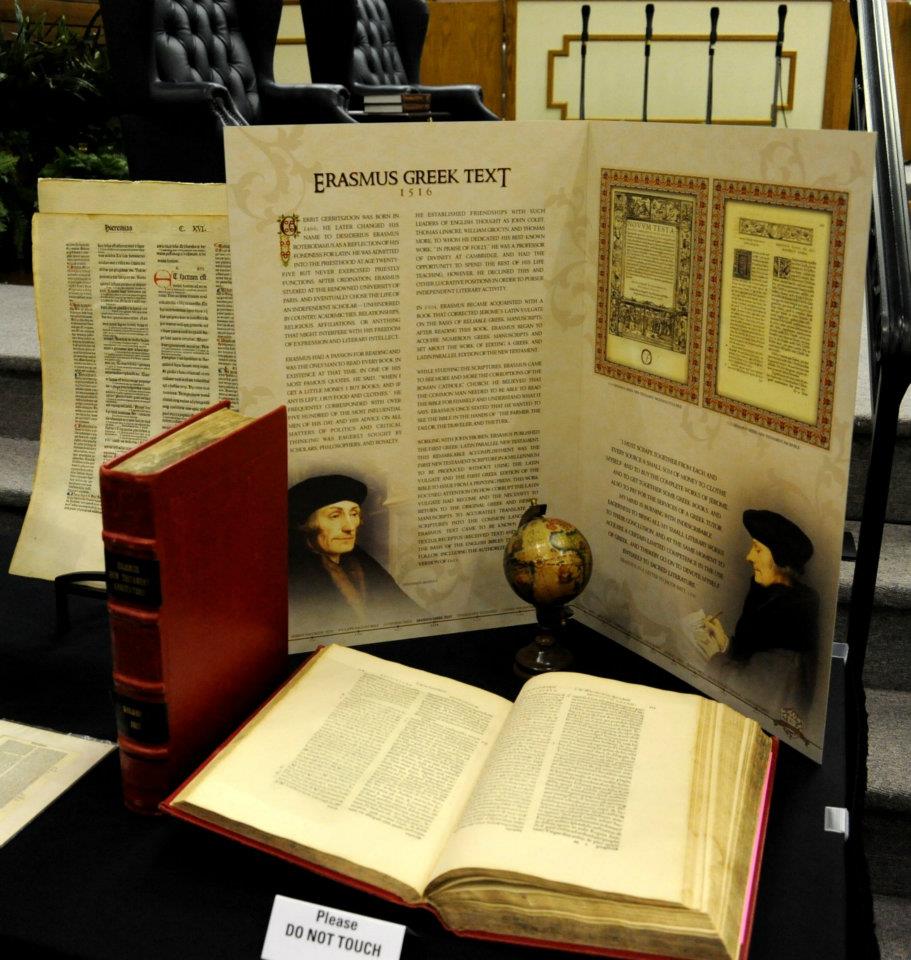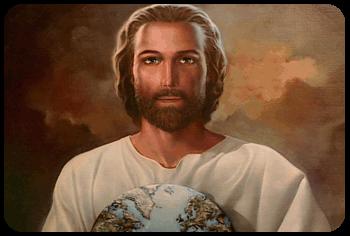|
**List: Dutch (Flemish) Ministry
the Bible ( de Bijbel )
Dutch (Flemish)...
"Dutch is spoken by about 12 million people in the
Netherlands
and by an additional 5 million (55 per cent of the population)
in northern Belgium, where it is known as Flemish, and is co-
official with the French of the
Walloons. Although separated
by
distinct cultural heritages and national borders, the Dutch and
Flemish admit few linguistic
differences, and, in fact, there are
only trifling variations in Dutch and Flemish, mostly in pro-
nunciation. There are also Dutch-speaking populations in the
Netherlands Antilles, Surinam, and the former Dutch East
Indies.
Dutch is a Germanic language, related to Frisian. The Romans,
however, record making contact in this area with non-Germanic
tribes related to the Celtic Belgian peoples. Even at this early
date, there were already Germanic groups (e.g. the Batavi)
living around the Rhine delta. Later the Frankish tribes extended
their influence over the area, and the Celtic inhabitants gradually
accepted the Low Franconian idiom. Mixed with elements of
Frisian it became the modern vernacular of the Dutch and
Flemish. Regional dialectal differences can still be noted.
The extraordinary devotion of the Dutch-speaking people to
their Bible has been demonstrated by the honour paid to it, both
publicly and privately, as a symbol of their civil and religious
freedom. But this esteem is still better proved by the constant
use of the Bible in personal devotions and its central place in
worship services.
More than a century before the publication of the States-
General Version in 1637, the Antwerp printer J. van Liesvelt
gave the Dutch their first complete Bible, translated mostly
from Luther’s version by a group of
early Protestants, whose
names have been lost. Indeed, in those days it was almost
signing one’s own death warrant to put one’s name to a vernacu-
lar Bible. But after the long fight for freedom from Spain had
been won by the provinces of the Low Countries, the Synod
of Dort in 1618-1619 made provision for a translation of the
Bible directly from the Greek and
Hebrew original texts, such
as the English people had acquired in
1611. Licensed by the
States-General, this Bible was published in 1637, and superseded
all earlier editions. It was soon found in every household, and
went with the Dutch colonizers to the New World and to
South Africa." --1000
Tongues, 1972 [Info only:
Is the SGV 1637 Dutch partly based on 1638 Greek: Modern NT?]
|
"1522 Matthew D. Pieterszoen, Amsterdam
Translated by Johan Pelt, from
Erasmus’
Latin text."--1000 Tongues,
1972 [Info only]
|
"1523 New Testament
A. van Bergen, Antwerp, D. Pieterszoen,
Amsterdam
Translated from Luther’s German
version. Numerous other editions
appeared throughout the Low Countries during the next decade; some
were considerably revised (e.g. that of Janszoen, Leiden,
1533.)"--1000 Tongues, 1972 [Info only]
|
"1525 Old Testament Kaetz, Delft, et
al.
The first complete O.T. in Dutch. The Pentateuch owed much to
the
Luther version; the
rest to the ‘Delft
Bible’."--1000 Tongues, 1972 [Info only]
|
"1526 Bible J. van Liesvelt, Antwerp
The first complete printed Dutch Bible, prepared by a group of Dutch
scholars. J. van Liesvelt had printed the Gospels as early as
1522.
Although the first edition by van Liesvelt turned to the
Vulgate
(while noting other versions) for those portions which had not yet
been
published in Luther’s version, later van Liesvelt printings were
based
soley on Luther." --1000 Tongues, 1972 [Info
only: Flemish.
Jacob {a-} Liesveldt...was condemned and beheaded, because, in the
annotations of one of his Bibles, he had said that "the
salvation of mankind proceeds from Christ alone." per S. Bagster]
|
"1556 Bible S. Mierdman & J. Gheylliaert,
Emden
Edited by Jan Gheylliaert; prepared from the German Zürich version
and the van Liesvelt Bible of 1526. It became popular among Re-
formed churchmen."--1000 Tongues, 1972 [Info only]
|
"1556 New Testament G. van der Erven,
Emden
Based on Stephanus’
Greek text of 1542 and translated by
Jan
Utenhove and a group of
Reformed ministers in exile,
it is the earliest
Dutch text with numbered verses."--1000 Tongues, 1972 [Info
only]
|
"1558 Bible S. Mierdmen & J. Gheylliaert,
Emden
Based on the Magdeburg Low German
Bible of 1554, this Bible was
used by Mennonites and Dutch Lutherans until 1648. Numerous re-
visions appeared. Known as the ‘Biestkens Bible’, although
neither
prepared nor initially published by N. Biestkens van Diest, this
version took its name from his modification of the text in the 1560
(1st) and subsequent printings by Biestkens."--1000
Tongues, 1972 [Info only]
|
"1559 New Testament Emden
Translated by Johan Dyrkinus, on the basis of the Utenhove N.T.
It
was later included in Deux Aes Bible of 1562-1564."--1000 Tongues,
1972 [Info only]
|
"1562-1564 Bible G. van der Erven, Emden
Translated by Godfried van Wingen, and known as the ‘Deux Aes
Bible’, owing to a note on Nehemiah 3:5. Including the
Dyrkinus
N.T., it was the Bible of the
Reformed Church until 1637.
Often
reprinted and revised."--1000 Tongues, 1972 [Info only]
|
"1637 Bible P. A. van Ravesteyn, Leiden
The ‘States-General Version’, prepared after a resolution
(1618-1619)
of the Synod of Dort. The translators were W. Baudart, Jan Boger-
man, Gerson Bucer, Peter Cornelli, Jacob Roland, Anthony Thysius,
and Anthony Walaeus. Authorized by the States-General it became
the standard Bible of the Dutch Reformed Church,
and remains in
use to this day."--1000 Tongues, 1972 [Info only:
STATES-GENERAL VERSION "1637" Mark 1:2 correct (de Propheten = the
Prophets).]
|
DUTCH States-General Version--1000 Tongues, 1939 [Info only:
Gothic characters "1648" John 2:25; 3:16-17a unknown.]
"1648 Bible D. van Baardt, Amsterdam
A revision of the Biestkens Bible by Adolf Visscher; it brought the
text into accord with the Luther Bible.
It remained the Bible of Dutch
Lutherans until 1951, when the Netherlands BS version was adopted."--1000
Tongues, 1972 [Info only: ?]
|
"1867-1868 New Testament Amsterdam
A new version, prepared by J. J. Prins and others, for the General
Synod of the Dutch Reformed
Church."--1000 Tongues, 1972 [Info only: ?]
|
DUTCH--1000 Tongues, 1939 [Info only: Roman characters
"1918" John 3:14-20a, 28b-36a {correct w/ God 3 times @ 3:34}.]
**File: Dutch Bible History (3)--1860 S.
Bagster [Info only]
**File: Dutch (Flemish) Critical Text History
"The first Dutch translation from the Received Text
talking was
in 1637. It became known as the States-Bible
(Statenvertalling). It was influenced by the King James Bible.
This is often known as the Dutch Authorized Version. It is
credited with standardizing the Dutch language.
It was revised in 1657 and this revision remained the standard
Dutch Bible until 1951. The 1657 version is still in print and
used by some Dutch believers. There are also aborigine tribes
in Taiwan that use this Bible--the influence of Dutch
mies. in the 1800s." --PS [Info only]
|
|

